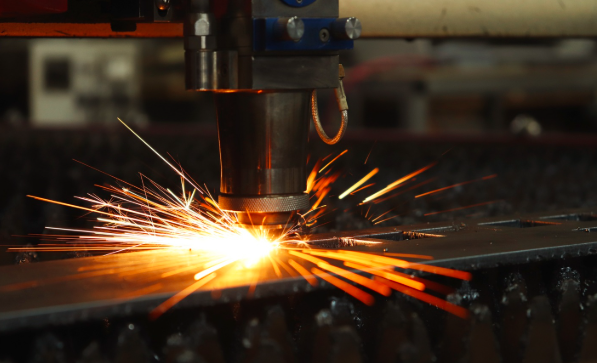Precision Machining Service: A Key to High-Quality Manufacturing

Introduction
In today’s rapidly evolving manufacturing sector, delivering components with accuracy, repeatability, and speed is not just an option—it’s a necessity. From aerospace and automotive to electronics and medical industries, precision machining ensures that every part, no matter how small or complex, is manufactured to exact specifications with minimal deviation.
What is Precision Machining?
Precision machining refers to the process of removing material from a workpiece while maintaining tight tolerances. This is done using computer-controlled machines such as CNC mills, lathes, grinders, and EDM machines.
Unlike standard machining, precision machining prioritizes accuracy and consistency. It often involves tolerances as tight as ±0.001 mm and surface finishes measured in microns.
Importance Across Industries
The demand for precision machining services is increasing due precision machining service to their application across various sectors. Therefore, turbine blades, engine parts, and structural components must be precisely crafted.
In the medical field, implants, surgical instruments, and prosthetic devices need exact geometry and flawless surfaces to perform safely within the human body. Similarly, automotive, telecommunications, and defense industries all rely on precision parts to ensure optimal performance and safety.
Tools and Machines Used
- CNC Milling Machines: Used for complex geometries and multi-axis work.
- CNC Turning Centers: Ideal for producing cylindrical parts.
- Swiss-type Lathes: Preferred for high-precision small components.
- Coordinate Measuring Machines (CMMs): For accurate inspection and verification.
The integration of robotics, AI-based controls, and digital simulations has further improved the accuracy and efficiency of precision machining.
Materials That Can Be Machined
One of the strengths of precision machining services is the ability to work with a wide range of materials. Metals such as aluminum, steel, titanium, copper, and brass are commonly machined. In addition, engineering plastics like PTFE, Delrin, Nylon, and PEEK are used for non-metal components.
Each material poses different challenges in terms of cutting speed, tool wear, and heat generation. Skilled machinists and advanced programming ensure that the right strategies are used for each material type.
Advantages of Precision Machining
The benefits of using a precision machining service go far beyond simple part creation:
- High Accuracy: Precision machines can hold tight tolerances that are essential for critical applications.
- Repeatability: Even in high-volume production, each piece remains consistent with the original design.
- Time Efficiency: Automation and computer-controlled tools reduce cycle times dramatically.
- Waste Reduction: Precision means less material wastage and lower production costs.
- Enhanced Durability: Precisely machined parts generally have longer service life due to better fit and surface finish.
Prototyping and Mass Production
Once a prototype is approved, the same digital files and machine settings can be used to scale up to full production. This seamless transition saves time and ensures continuity between design and manufacturing.
Quality Control Systems
Modern shops implement rigorous inspection protocols at every stage of the production cycle. Some common practices include:
- In-Process Inspections: Machinists measure critical dimensions during the machining process to catch issues early.
- Final Part Inspection: Using CMMs and optical tools, parts are checked for dimensional accuracy, surface finish, and geometry.
- Documentation and Traceability: All measurements, materials, and processes are documented for full traceability.
Additionally, certifications such as ISO 9001, AS9100, and ISO 13485 are often held by top-tier precision machining providers to ensure quality and compliance.
Read also: Enhancing Fieldwork Efficiency with Android Barcode Scanners
Customization and Flexibility
Precision machining services are highly customizable. Clients can provide CAD files, technical drawings, or even sketches, and the service provider will work with them to create tailored parts. Custom jigs, fixtures, and tooling are often developed to improve machining efficiency and part consistency.
This level of flexibility is especially valuable for companies in R&D, where frequent design changes require a responsive and adaptable manufacturing partner.
Digital Integration and Smart Manufacturing
In the age of Industry 4.0, precision machining services are increasingly integrating with digital technologies. Cloud-based platforms, IoT-enabled machines, and AI-driven monitoring systems allow real-time data analysis, predictive maintenance, and improved workflow automation.
These innovations make it possible to track production in real time, receive alerts for any abnormalities, and optimize machine usage across multiple projects simultaneously.
Outsourcing Considerations
Many companies choose to outsource their precision machining needs instead of maintaining an in-house facility. This approach has several advantages:
- Cost Efficiency: Avoids investment in expensive machinery and skilled labor.
- Access to Expertise: Benefit from the experience of specialists in machining and design.
- Focus on Core Competencies: Allows companies to concentrate on design and marketing while the machining is handled by experts.
When outsourcing, it’s important to select a precision machining provider with a strong track record, excellent communication, and transparent pricing.
Conclusion
In today’s high-performance industries, precision and reliability are essential. A trusted precision machining service enables companies to bring their innovative designs to life with accuracy, efficiency, and consistency. From one-off prototypes to full-scale production, the value of precision machining extends across every step of the manufacturing journey.
As technology continues to evolve, so too will the capabilities of these services—making them indispensable for future-ready businesses that demand excellence in every part they produce.





